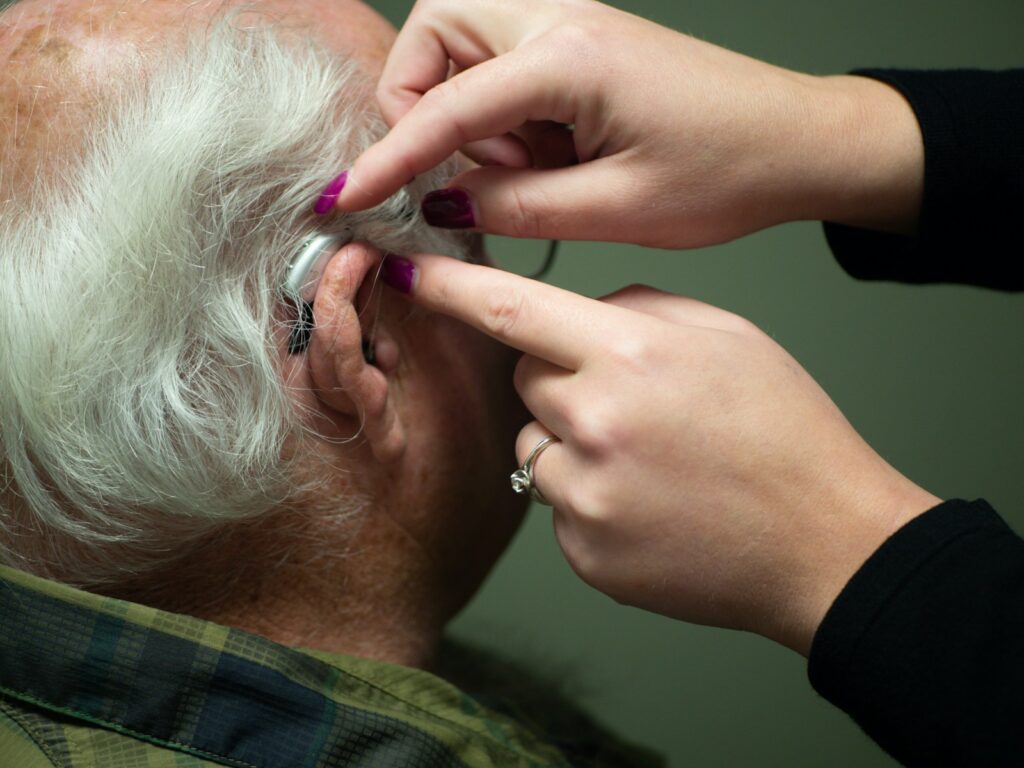So as we grow old our bodies change in a variety of ways, including how we experience the world through our senses. Seniors may notice a decline in sensory ability in the form of vision, hearing, taste, smell and touch, which can make daily activities a little more difficult. But some tweaks can help keep seniors safe while they live a fulfilling life. In this blog, we will take you through common sensory changes that can occur as we get older and some easy tips for caregivers to help seniors stay safe and comfortable without having to lose their independence.
Vision Changes in Seniors
One of the more noticeable sensory changes that happen due to aging is vision. Most seniors slowly lose their eyesight and this can affect the ability to see depth, colors, and low light vision. Cataracts, glaucoma, macular degeneration, are some of the common conditions among seniors.
To help seniors with vision challenges at home, you should:
Improve lighting: Ensure that rooms in areas like the kitchen, bathroom and hallways are well lit. Opt for brighter light bulbs, and add extra lamps where required.
Use contrast: Colors that are high contrast are good in helping seniors see objects better. For example, using dark colored plates for light colored foods, and brightly colored tape on the edges of stairs to highlight them.
Magnification tools: Keep magnifying glasses easily accessible for reading small print or labels, and if possible, invest in large-print books or digital devices that allow text enlargement.
These simple modifications can help seniors significantly in feeling more confident and independent in their homes.
Hearing Loss and Its Impact
Another common issue for the aging individual is hearing loss. It can take seniors out of the loop or disconnected in an environment where they will likely listen to more noise than any younger person. Hearing aids can definitely help, but it also is important to live in a sound friendly home.
The following are some tips for supporting seniors with hearing loss:
Reduce background noise: Switching off the TV or radio when talking to the senior makes it an easier conversation since the person will be able to hear better.

Face to face communication: If you’re talking with someone who has hearing loss, look straight at them, speak loudly and make sure your face can be seen to help with lip reading.
Assistive devices: Think of things like amplified phones or personal sound amplifiers to help with communication. Also, you can install doorbell lights that flash rather than just make sound.
A quieter and more focused environment allows seniors to be more engaged in conversations, without having to strain themselves while hearing.
Changes in Taste and Smell
The decrease in the ability to taste or smell things is something that’s often overlooked, but can have a big impact on a senior’s quality of life. Loss of taste and smell can reduce appetite (and so nutrition) and make it harder to detect spoiled food or the smell of a fire.
To help seniors maintain their sense of taste and smell, you gotta:
Spice things up: Use herbs, spices, citrus flavors to further increase the intensity of meals. But you should be careful with salt, since so many seniors have to limit their sodium.
Regularly check food freshness: If seniors have a diminished sense of smell, then it’s a good idea to go through the fridge and pantry regularly to determine if there is anything that’s spoiled and can’t be eaten, and get rid of it on time.
Fire and gas detectors: Be sure that your smoke and carbon monoxide detectors work as the senior may be less sensitive to the smell of smoke or of gas leaks.
Meals being flavorful and reasonably safe can help seniors in home care, keep eating and enjoying healthy food.
Decreased Sensitivity to Touch
In our aging, sensitivity to touch and temperature can diminish as well. For seniors it might become harder to notice hot surfaces or pressure sores if they have been sitting or lying down for extended periods of time.
Here are a few ways to manage those changes in touch:
Test water temperature: Check bath water or dishwater, with a thermometer or hand before an elderly person uses it, make sure that it is at the right temperature.
Use cushioned seating: Make sure that seniors who spend a long time sitting or lying down have soft and comfortable seating so that this creates the least pressure over the area and prevents pressure sores.
Encourage regular movement: Avoid stiffness or pressure related issues by encouraging them to do gentle stretching or repositioning throughout the day.
Small changes in the way seniors do things throughout each day can help ensure they feel more comfortable and less susceptible to common hazards related to touch sensitivity.
Supporting Seniors Through Sensory Changes
It’s important to remember that the sensory changes in aging are natural, but they should not lessen a senior’s quality of life. We can help seniors accommodate the changes in vision, hearing, taste, smell, and touch by creating such an environment that is friendlier to the changes they are experiencing. Small changes in the home can help keep seniors independent, safe and in touch with the world.
As one of the leading providers of personalized care, at 1st Care Community we realize that each senior has special needs, so we can provide personal attention that helps them thrive. We can help your loved one live better, with services that put special emphasis on health, safety, and companionship. Visit η ιστοσελίδα μας to find out more about how we can help your senior loved one right at home with our expert home care solutions!


